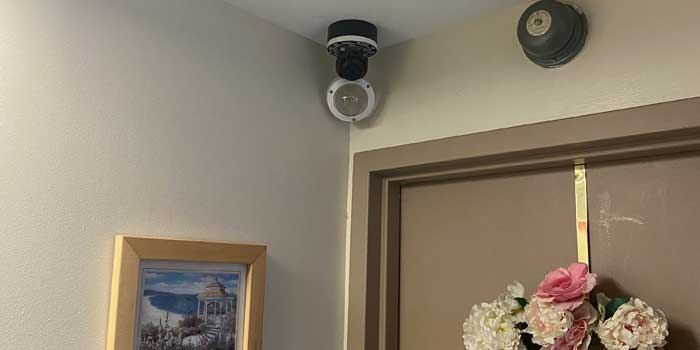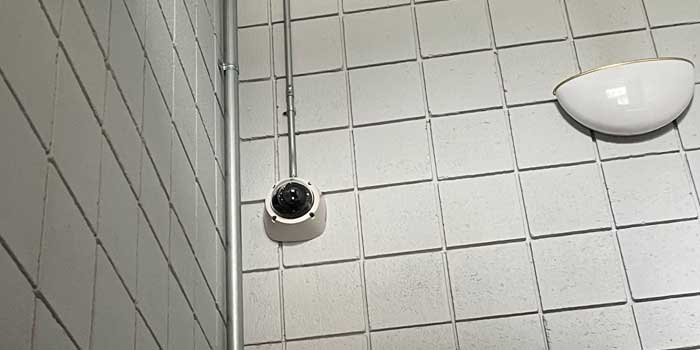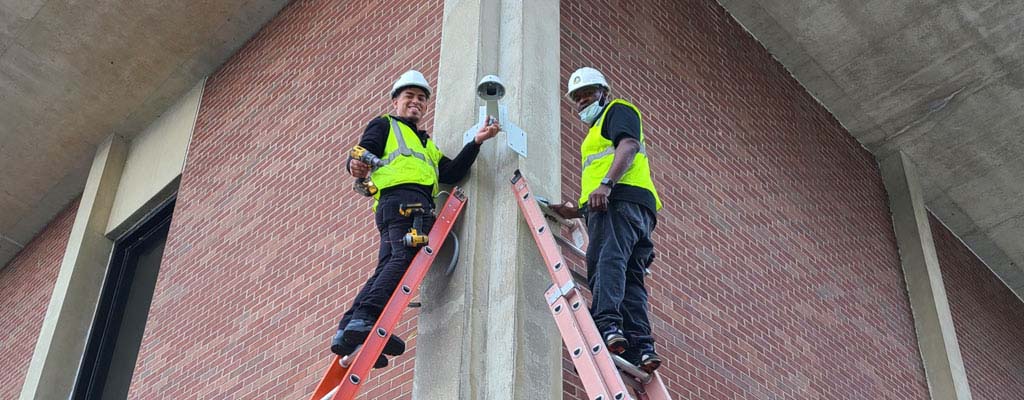Video MGMT System
 Access Control
Access Control
Voice & Data Wiring
 Burglar Alarm
Burglar Alarm
 Fire Alarm
Fire Alarm
Video MGMT System
Voice & Data Wiring
Security systems, specifically security camera systems, play a crucial role in protecting businesses. Security cameras deter crimes, provide evidence in case of disputes, and generally give business owners peace of mind.
Mammoth Security provides both box and IP camera systems that can be customized to meet your unique business security needs.
The key to box cameras' flexibility lies in their modular design. Unlike most security cameras that are assembled and sold "as is," box security cameras are designed to accommodate interchangeable parts. You can swap out lens mounts, lenses, cables, and in some cases, even circuit boards and image sensors, making them adaptable to evolving security needs.
Box cameras' modularity extends to their installation capabilities, too. They can be installed indoors or outdoors for surveillance of residential properties or businesses and can even live stream surveillance over the Internet when connected to a network or display footage on a CCTV monitor. With box cameras, you get a security camera that's almost as diverse as your business needs.
On the other side of the coin, we have IP cameras. IP cameras are known for their excellent image quality and the ability to transmit data via an Ethernet connection to a video management system (VMS) or a network video recorder (NVR). This digital data can be easily accessed and analyzed, and IP cameras allow for remote access over a network connection.
The major difference between these two types of security cameras lies in their connectivity and flexibility.

Box cameras, being a type of analog camera, transmit video through a coax cable to a digital video recorder (DVR).
On the other hand, IP camera CCTV systems send data through an Ethernet cable to a network video recorder.
Another key difference is in their flexibility. While most IP cameras excel in digital connectivity and image quality, box cameras shine in their power, versatility, and adaptability. Their modular design allows for changing internal features to meet your business's security needs.

From lenses to data transmission, let's delve into the differences between these camera types.
When choosing a security camera, cost and performance are two main factors. Box cameras are generally more cost-effective, while IP cameras offer more bandwidth and superior performance in terms of image quality and features.
While IP cameras generally offer superior image quality, box cameras, with their interchangeable lenses and components, can be adapted to offer adequate performance and optical zoom for specific applications.
Consider factors like your business size, specific security needs, budget, and the complexity of installation. With box security cameras, you have the added advantage of modularity, letting you change features as needed.

Whether you choose box cameras or IP cameras for your security camera footage, both offer unique advantages that can enhance your business security and save money.
At Mammoth Security, we're here to help you understand these differences and make the best decisions for your business or institution. For assistance with your video surveillance system, including the selection process between box security cameras and an IP security camera system, fill out the simple form at the bottom of this page!
NOT COMPLETELY SURE?
860-748-4292Box security cameras offer versatility with their modular design. The parts of a box camera—such as lenses and sometimes even image sensors and circuit boards—can be swapped to meet changing security needs.
An IP security camera offers superior image quality, easy remote access over a network, and sometimes even in-built artificial intelligence for video analytics. The video footage from IP cameras is digitally recorded, allowing for easier retrieval and higher-quality images.
Absolutely. You can turn an indoor box camera into an outdoor box camera by placing it in a clear housing with a good Ingress Protection (IP) rating. The higher the IP rating, the more reliably the housing will keep out dust, water, and snow.
The main difference lies in their flexibility. The modular design of a box camera allows for changing internal features to meet specific needs. IP security cameras are sold "as is."
Further, box cameras, being analog cameras, connect video through a coax cable to a digital video recorder (DVR), whereas IP cameras send data through an Ethernet cable to a network video recorder (NVR) or video management system (VMS).
Yes, box cameras can be placed inside obscuring housings to hide their surveillance properties, and their exterior can even be decorated to blend in with bookshelves and other objects.